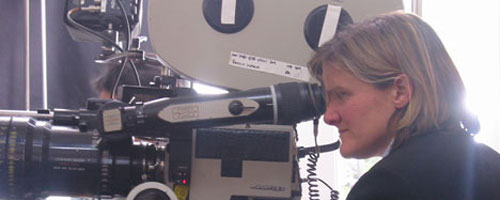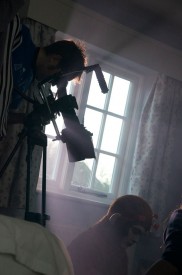In an eye-opening 2014 investigation of gender within the UK film industry, Stephen Follows showed that just 92% of DPs are men. Why is this?
“Women just aren’t interested in that techie stuff,” is a common refrain, but then how do you explain the much greater percentage of women working in stills photography (anywhere from 17% in the UK to 51% according to a US report)? I believe the difference is that, unlike photographers, cinematographers are surrounded by large crews – and the attitudes and prejudices of those crews can hugely impact how comfortable and welcoming a career it feels.

An excellent female camera assistant I once worked with mentioned, towards the end of the shoot, that she almost turned down the job. It was because of something a male member of the production department said to her during preproduction: “Can you even carry heavy camera kit?”
I had actually had a conversation with this man earlier in prep concerning the way he spoke about women, and his defence was that he was joking, he didn’t mean it. But even if this was true, the fact remains that the project nearly lost a very competent and experienced member of the camera team (who, for the record, had absolutely no problem lifting a heavy camera package onto my shoulder day in, day out for weeks).
How many productions, I wonder, have lost talented female crew members because of similar misogynous remarks or assumptions? And how many such remarks does it take before some women might say, “Well, I’m a great camera assistant and I’d love to be a DP some day, but I’m giving up and switching careers because I just can’t take all this sexist bullshit any more”? How many such remarks until some women might even start to believe that they really can’t do the job as well as men?

This is surely part of the reason for the huge gender disparity amongst cinematographers – because some women have been teased, doubted, persuaded and bullied out of the department, maybe not openly, maybe not directly, but gradually and insidiously with a bigoted remark here, a misogynous joke there, and so on. And whether it’s intentional or not, it has an effect. Even calling lamps “redheads” and “blondes” is another grain of sand on the ten mile beach of misogyny. (Instead call them 800s and 2Ks – little things like this do add up.)
The responsibility is on all of us, men especially, to make sure we are not contributing to this culture, that we are calling out this behaviour when we see it, and that our departments are comfortable places to work for both genders. Some producers and directors complain that there simply aren’t enough women applying for positions in the camera dept, but if together we can create an environment that values them, I believe we will eventually find just as many women applying as men.
I’ll leave you with a couple of articles that highlight some of the excellent female cinematographers working today:
IndieWire: Top Women Cinematographers Reveal 7 Best Tips for Career Success

